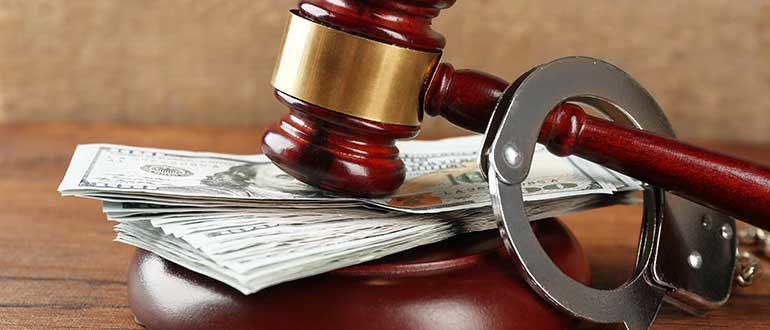
Tax fraud is a serious crime with harsh consequences. It can range from underreporting income to claiming false deductions. Regardless of the type of fraud, the penalties for tax fraud are severe and can include hefty fines, jail time, and restitution. This blog will examine the tax fraud penalties and what you need to know to avoid them.
What Is Tax Fraud?
Tax fraud is a criminal offense involving intentionally misusing tax laws and regulations to gain an unfair financial advantage. Tax fraud can range from simple mistakes on a tax return to serious tax evasion and avoidance cases. Regardless of the severity of the offense, the penalties for tax fraud can be severe, and the consequences of being convicted of tax fraud can be life-altering.
Tax fraud can take many forms, from filing false or incorrect tax returns to deliberately underpaying or evading taxes. Tax fraud can also include claiming false deductions or credits, failing to report income, or using offshore accounts to hide income or assets. Sometimes, taxpayers may also be guilty of tax fraud if they fail to file a tax return.
Penalties for Tax Fraud
Everyone needs to understand the consequences of committing tax fraud to avoid it in their own lives. Here are five penalties for tax fraud that you should be aware of:
- Criminal Charges: Tax fraud is federal, so you could face criminal charges if found guilty. Criminal charges could include fines, jail time, or both. Depending on the severity of the offense, you could be looking at a lengthy prison sentence.
- Civil Penalties: Civil penalties can also be imposed in addition to criminal charges. Civil penalties can include fines, seizure of assets, and other financial penalties. These penalties are often harsh and can have a lasting impact on your financial situation.
- Interest and Penalties: The IRS can impose interest and penalties on any unpaid taxes. These interest and penalties can add up quickly and can significantly increase the amount of money you owe.
- Loss of Tax Benefits: Depending on the severity of your tax fraud, you could be denied certain tax benefits. This includes credits, deductions, and other tax breaks. Not only will you owe more money, but you could be denied certain benefits that could help reduce your tax burden.
- Revocation of Tax Return Privileges: If you commit tax fraud, the IRS may revoke your privilege to file a tax return for a specific period. This means you won’t be able to file a tax return until the revocation period ends.
How to Avoid Tax Fraud Penalties
Tax fraud is a serious crime that carries severe penalties, including hefty fines and even prison time. Fortunately, there are several steps you can take to avoid becoming a victim of tax fraud and its associated penalties. Here are three tips to help you stay safe and avoid tax fraud penalties:
- File Accurate Tax Returns: Always file accurate tax returns. Make sure that all of the information you provide is correct and up-to-date. Double-check all of your calculations and review your return before submitting it. If you make a mistake, it could lead to an audit or even criminal penalties.
- Know Your Tax Obligations: Understanding your tax obligations and the laws surrounding them is important. Ensure you know all the deductions and credits you are eligible for and take advantage of them. Be sure to research any changes in the tax laws that might affect you and adjust your tax return accordingly.
- Choose a Reliable Tax Preparer: If you are using a tax preparer, choose one that is reputable and has experience in the field. Ask for references and ensure they are up-to-date on the latest tax laws. Reviewing the preparer’s work before submitting it is also a good idea.
By following these tips, you can help ensure you are not the victim of tax fraud and its associated penalties.
What to Do if You Are Accused of Tax Fraud
If you are accused of tax fraud, it is important to seek legal advice immediately. A qualified tax attorney can help you understand the charges and determine the best action. In some cases, it may be possible to negotiate a settlement or plea bargain to reduce the penalties.
It is important to remember that tax fraud is a serious crime, and its penalties can be severe. By filing your taxes accurately and honestly, you can help avoid tax fraud penalties and protect yourself from criminal prosecution.
